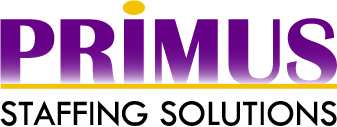Interviewing Tips
The interview is the most important part of the candidate screening process. There isn’t really a universal, perfect way of interviewing. On the other hand, it is well-known what not to do during an interview. Avoid the following at all costs:
- Showing up late. Allow enough time to be there shortly before the interview. If you are late, you must have a convincing reason, and you must ask if they would like to reschedule the interview. Give the person a chance to rearrange the interview schedule in hope of making up for the lost time.
- Being unkempt. Unprofessional attire, ungroomed hair, conspicuous tatoos, flashy jewelry and unpleasant odors can ruin your chances before you even say a word. Practice your presentation ahead of time.
- Poor eye contact, appearing elusive. You should appear confident and competent, but not arrogant., Look at the interviewer and note their body language. This will help you figure out how to act yourself.
- Excess of caffeine. Caffeine is great at waking us up, but it also makes us nervous and irritable. Make sure you don’t drink more coffee than you should before the interview.
- Appearing unprepared. Visit the company’s website and find out about them ahead of time. Make sure to have a pad and a pen, a hard copy of your resume, your ID and any professional licenses that may be relevant.
- Taking phone calls during the interview. You should turn off your phone during the interview, or at least put it on vibrator mode. You should not answer the phone unless you suspect a real emergency, and in that case ask to be excused, walk to a private space, and come back promptly. You should allow your interviewer to pick up phone calls, however. They are in their work space, while you are not (yet).
- Asking about compensation or benefits before the closing phase of the interview. We all work for money, but you don’t want to send the signal that this comes before everything else.
- Talking too much, listening too little. An interview is an exploration process that goes both ways. Ask the interviewer relevant and informed questions, show interest in what they say, and keep a balanced conversation.
- Being abrasive or holding grudges. There might be things about this or past jobs that you don’t like, but an interview is not the time to vent about them. Have an open mind, and ask questions instead of making assumptions.
- Being disrespectful. You are talking to a future boss or coworker, and unless you show respect for their knowledge and experience, they will conclude that you don’t care about taking the position and working with their team.




